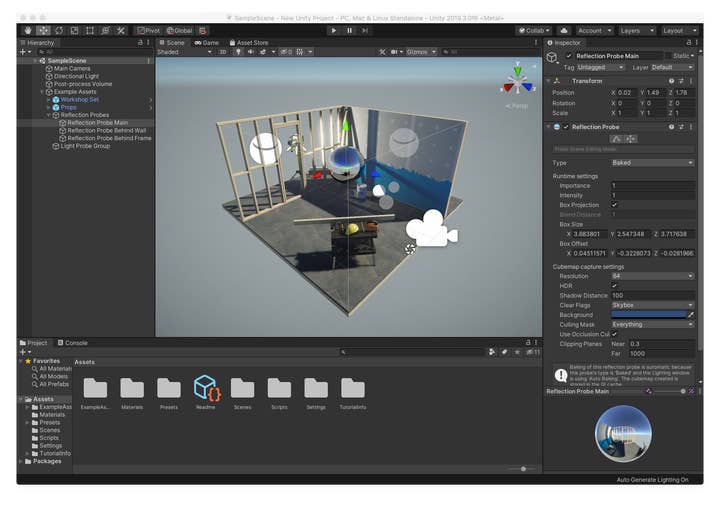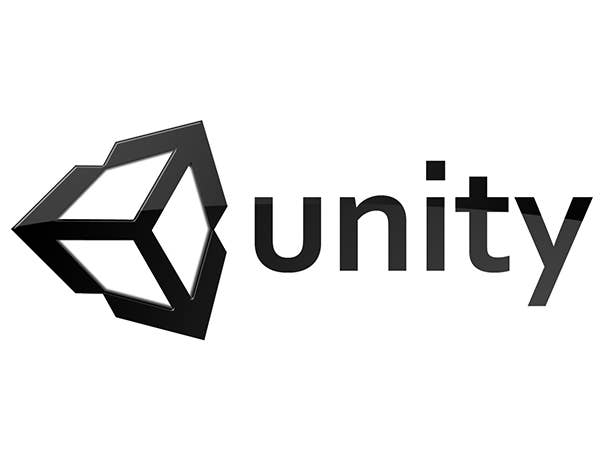Unity: Fine-tuning solutions to gaming's "massive content problem"
Brett Bibby on helping developers to meet a 100x increase in game content, and Unity's solutions to the spread of remote working
Today, Unity Technologies is shipping its 2019.4 Long Term Supported Version -- the latest version of Unity, which the company will support and maintain for the next two years.
Unity's release cadence has been to drop a new LTS each year and support it for two, interspersed with multiple tech stream releases in between. Though previously the company had been dropping three tech stream releases per year, in 2020, it's down to two going forward.
According to chief product officer Brett Bibby, Unity's focus in the latest LTS was largely on quality-of-life improvements, including a modernized UI, shortcut managers, and improvements to useability and other time-savers. Unity's scriptable render pipeline is also coming out of preview, allowing users to control rendering via C# scripts.
It's a lot of fine-tuning, rather than massive, overarching changes to how Unity works. Bibby says the company looks at developing its technology through two "themes." The first is in keeping with the company's trend of going through "arcs" of technology -- periods of innovation, followed by quality improvements, then back to innovation again.
"We're definitely in a quality phase right now," he says. "It's making everything work with everything, that interoperability of features, making sure that you know every system supports the new renders and that it does everything every previous version of Unity did. Then we can migrate users over. Quality, stability, upgradability -- these are definitely theme number one.

"And then theme number two, which I think is related to that: we have a massive content problem. When you have a massive content problem, that means your content portion of your game is getting much larger, so you have more creative folks on your team than you necessarily have technical folks. So workflows are something we've already been working on for a couple of years, but we're really going to accelerate the work now."
When Bibby says gaming has a "content problem," he's referring to the way that improving technology has created more work for developers trying to live up to user expectations. And with the next generation of consoles on the horizon, that's about to happen again. Bibby says Unity is answering that by focusing on what it believes developers will need most to make use of their capabilities: performance improvements and better scalability.
"I grew up with TVs that had antennas on them," Bibby says. "And we had the old school NTSC, PAL, SECAM standards, and then we moved to standard definition, then we had 720, 1080p. And now we've got 4k screens, 8k screens, and this is like 100 times more pixels. But there are also 100 times more things on the screen, because if [there weren't], it would look kind of vacant.
"We've got 100 times more pixels. But there are also 100 times more things on the screen, so we've got this 100x increase in content"
"So we've got this 100x increase in content, and I think that's something that we're really sensitive to -- how are creators going to actually author content for this? So a lot of the niceties and things that are in the 2019 LTS are there [because] the content's bigger, the content's heavier, it's got to work faster, and so on. So that's one part.
"The second part is, we're investing a lot in what we call assisted artistry... Based on the things that you're doing, we can suggest other kinds of content. So if you start to decorate a forest in a certain way, then it can help you decorate the rest of the forest that way so you can focus only on the things you care about, versus the things that may be incidental."
Last month, Unity's direct competitor Epic Games showed off Unreal Engine 5 via a tech demo running on the PlayStation 5, specifically focusing on technology improvements the company said would decrease time and effort needed for developers to create beautiful, complex environments.
By comparison, Unity has been quiet. The LTS update announcement is on par for the normal cadence of what the company does, and if Unity has a comparable fireworks show of an announcement, Bibby isn't saying. But he does assert that Unity doesn't need the kind of overhaul Unreal is selling, not even for next-gen.

"The UE5 was fantastic," he says. "It's great. Competition is great. We like it. I mean, you can't be Coke without Pepsi.
"I think there are two sides to this. We've got to solve this daunting content challenge. At Unity, we don't think Unreal is solving it in the right way. The things that seemed good on the surface, where you drag and drop a model, and there are no LODs or there's no repeats, that means your project is going to be terabytes in size. And it's going to be very unwieldy. If you made a change to one rock, or an art direction, you'd have to go back over the entire thing and fix it. I think if I was making TV commercials, that approach works really well. But if I'm actually going to make a game at scale, we don't think that approach works.
"The UE5 was fantastic... Competition is great. We like it. I mean, you can't be Coke without Pepsi"
"And also, you can't make a living anymore on one platform. Unity promises: 'Author once, and deploy everywhere.' Be able to reach your audience everywhere that they are, whether they're on a phone that's a few generations old or they've splurged for the latest PS5, you're going to find that Unity runs on all of these places at scale really, really well. And of course, we're also working with Sony and PlayStation 5. We haven't announced anything yet, but I think that our technology will speak for itself."
Aside from its ongoing technology improvements, Unity is also adapting its engine and tools for an unexpected shift in how people make games: the new normal enforced by COVID-19. With more developers working from home, Bibby says that Unity is taking a closer look at what it can do to better support not just individual developers working remotely, but entire studios that might be adopting that structure long-term.
"We're very interested in collaboration and team collaboration and how that works," he says. "And it's kind of a tricky problem. If we're in Google Docs, and you're editing one sentence, and I edit another sentence, that's kind of okay. But if we were making games, and I was trying to drive down the road while you're moving a mailbox, and I smash into it, I'm sure we'd have a great laugh about it, but it's not exactly the right way to work.
"We have done a lot of research on things like that. I do think it gets into the assisted artistry thing I mentioned before where we can use cloud services to help solve some of the problems, at least with creation at scale and so on. We obviously have technology like cache servers and things that have worked well within an internal environment.
"But you know, within a COVID world, we're now looking at how we can bring these kind of technologies, like post-cache server on the cloud. So even if you're working remotely, if one person imported an asset or made a change, that replicates onto the cloud and down to everybody so that you don't have to redo all that work and get the benefits of a closed network in a remote network. It's kind of an unsolved problem. But we should have some announcements in the next two or three months and we'll start to see what we could bring to bear on that front."

